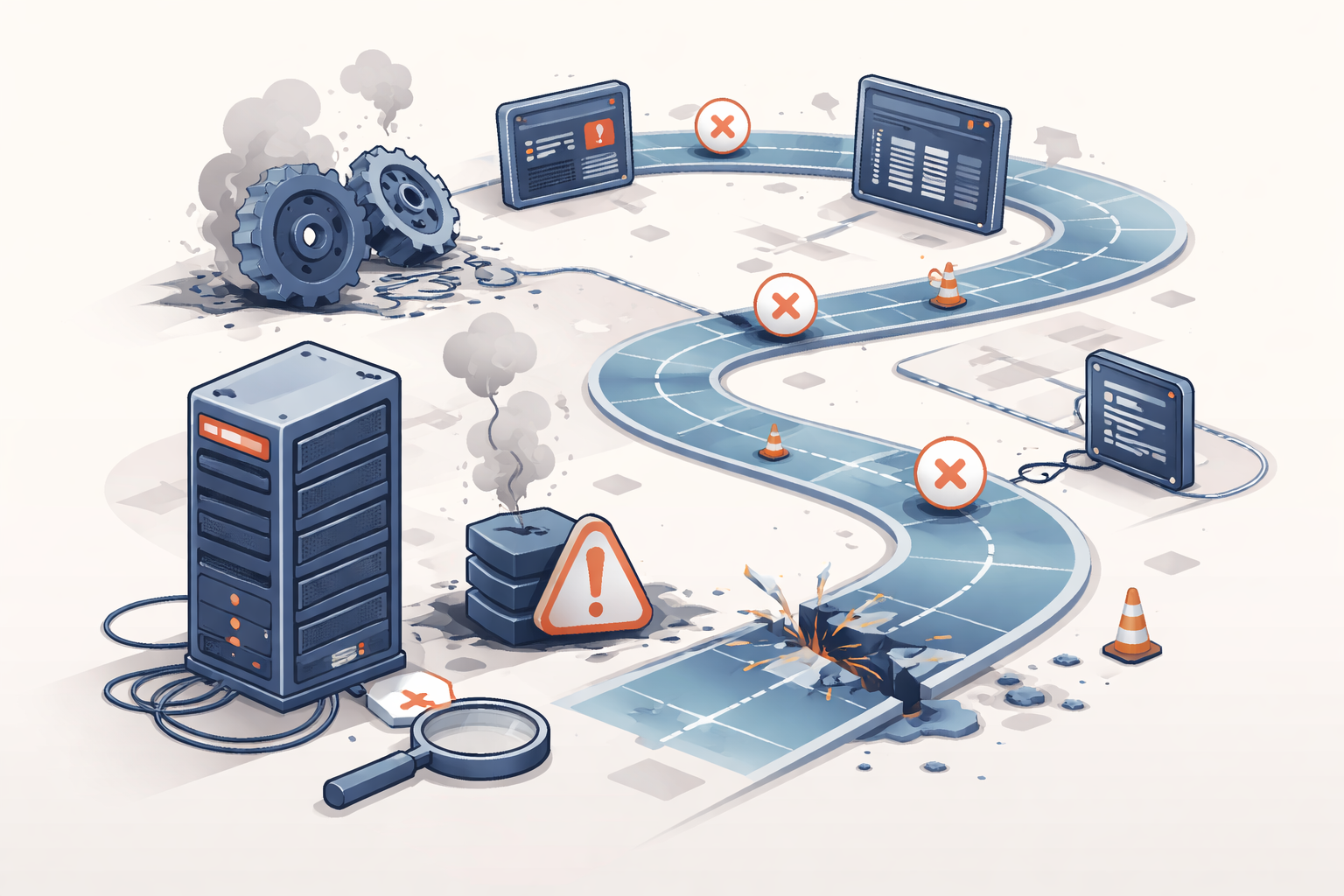3 things that stick with me after TechWolf AI Day

The cool thing about our customers is that I regularly get to go to a conference where smart minds come together to talk about innovations for a few hours. For example, TechWolf, for which we created the site among other things, organized their first AI Day on May 27. Around 500 people came together in the Winter Circus, where else, for a day of talks about AI.
TechWolf started as a group project at Ghent University and then grew into a concrete idea during a Websummit hackathon. It is now a scaleup where more than 100 people work. Founders Andreas Dre De Neve, Jeroen Jerre Van Hautte and Mikael Mik Wornoo raised more than 50 million euros to ensure that large companies such as T-Mobile, Booking and HSBC gain more insight into the skills of their thousands of employees. Mega cool and relevant technology, which ensures that TechWolf, together with scaleups such as Bizzy and Aikido, is one of the big contenders to become the next Ghent unicorn.
With such letters of honor, you can already get some big names at an event. For example, Mehdi Ghissassi, the former Head of Product at Google Deepmind, gave a crash course in AI. “There are a lot of complex problems in the world, but let AI be good at complexity,” he said. “The human quest for artificial intelligence is not new, but now we are at a unique point. The data is available, the hardware is available, and there are crucial innovations in LLM models." Let's go!
Artificial developers
At the AI Day, someone showed an interesting graph from Anthropic. It showed which jobs they used AI for and how much those people earned. As it turned out, AI is popular in the mid-range, especially among developers. Half of all conversations with Claude are about software development.
Marijn De Kerpel, AI Manager at TechWolf, introduced the “4 levels of self-driving code” in his keynote. In its simplest form, he said, AI can help developers by acting like a fancy autocomplete. You write a piece of code, and then the algorithm suggests what might follow.
A little more complex are the code assistants you can use for vibe coding. That concept, just about the hottest term among developers at the moment, means that you describe which piece of code you need in a very targeted prompt. Tools like Cursor and Windsurf are ideal for writing new or boilerplate code, or for documenting things.
The third level, Marijn said, is “code for code.” You can compare that to a car that can repair itself when it sees that things are about to go wrong. One example is the Gitlab bot that TechWolf developed internally, which, among other things, points people to code reviews, or another tool that does QA automatically. The last level is the Code Agents, such as Lovable, who pretend to be able to create complete apps and websites based on a chat conversation. For now, it is still in its early stages, but who knows, maybe this will be the reality one day.
Where do we make a difference?
In a panel discussion, Dewi Van De Vijver (Effex), Jens-Joris De Corte (TechWolf) and Karel D'Oosterlinck (Contextual AI) discussed the job market in the AI sector. Because yes, the European ecosystem is smaller than the American one, but there is a wave that continues to swell.
Of course, this is not only about the pure AI players such as Mistral, Deepl and Black Forest Labs, but also about the companies that layer on top of that AI. The panel therefore pointed out that in Europe, we are ahead of the United States in some sectors, such as recycling, for example. By developing AI applications there, we can make a difference.
More than AI knowledge
That approach is smart anyway: “You don't build a business around an AI model, you build a business around solving a problem,” someone said. What is the problem you want to solve? It's more important than ever that you also understand what you are doing effectively. Suppose you come up with an AI solution for the HR sector, your AI skills are coming to an end, but that is not the only thing. You need to understand how the companies that will use your technology work. How does such a corporate work? How do they deploy IT systems? Is their data safe?
With generative AI, you need to be able to estimate the output and close feedback loops to make an application truly accurate and reliable. As a developer, you usually do not have that domain knowledge of the sector you work for, so it is more important than ever to also keep focusing on domain-specific knowledge.

.png)
.jpg)



